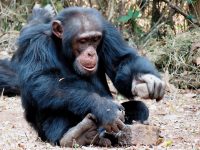
2007 commemorative stamp with the face of the physiologist and physician Hans Selye, on the occasion of the one hundred anniversary of his birth. / Mètode
It’s not stress that kills us,
it is our reaction to it.
(Hans Selye)
Humans have always been extraordinary social organisms, which implies a wide diversity of interactions with their homologues and the external world, and an ensuing rich social behavioural repertoire. This facet has significantly shaped our evolutionary progress. A key aspect during our adaptation to the environment has been the ability to answer the stress that such interactions could generate. The definition of stress may vary depending on a biochemical, psychological or social point of view; as a neuroscientist I will just define it as any disturbance of the homeostasis (i.e. equilibrium of the physiological conditions) caused by both external and internal factors.
Any disruption of our homeostasis switches on the «stress response». There are a series of glands linked together to form the HPA axis (hypothalamus-pituitary-adrenal gland). Its reaction against the stimuli that trigger the homeostatic changes involves the synthesis of a series of peptides, hormone cortisol amongst them, in charge of bringing the organism back to its normal physiological levels. In spite of the negative connotations we usually associate stress with, it would be incorrect to conceive it just as a natural response with deleterious consequences only. The very same nature of stress that, as we will see below, may represent a health risk, allowed our ancestors to maintain an alert state to adequately fend off predators and other natural dangers, granting our species’ survival.
«The very same nature of stress that, as we will see below, may represent a health risk, allowed our ancestors to maintain an alert state to adequately fend off predators and other natural dangers, granting our species’ survival»
Nevertheless, out of its evolutionary context, stress may be noxious. One of the key aspects during the perception of stress is the nature of the stimuli that elicit the response. According to the type, time of exposition and intensity, it may provoke variable longitudinal effects. It has been described how people that watched a loving person die, began to suffer acute parkinsonian symptoms hours after the incident. Much in the same way, people subject to long-lasting abuse, such as sexual aggressions, are prone to suffer from depression years later.
Another important point about the effects of stress is the stage in our development when we are exposed to it. During ontogeny, there are phases where the brain is undergoing a high number of structural changes (e.g. childhood and old age). It is in such instances when the HPA axis is more susceptible to deliver stress hormones into areas like the hypothalamus, hippocampus and amygdala, all involved in the stress response.
Last, but not least, it is worth mentioning studies that showed how stress is directly linked with the onset of several neurological disorders. Subjects exposed to stressful situations like losing their jobs or properties, are more likely to develop Alzheimer’s disease before the age of 50. Similarly, brain cancer patients with two-fold cortisol levels linked to stress have a higher incidence of cancer recurrence and metastasis.
In conclusion, we could think that living in an environment lacking the natural dangers that shaped the evolution of our species might necessarily increase our life expectancy or reduce the probability to suffering neurological disorders. Unfortunately this is not entirely true, as exemplified by a notorious study in a calm religious community in Cyprus that presented 157 cases of Alzheimer´s disease, 90% of which were in members of the congregation with higher ranks and greater responsibilities. Current studies on stress-mediated interaction between humans and their environment are hardly similar to those experienced by our dear Lucy more than 3 million years ago, in Ethiopia. However, it seems that, irrespective of the pressures that the environment exerts on us, it is mainly our personal tendency to suffer from stress, evolved in the age where we were chased by ruthless cave lions, which rules its short and long term effects on our health.





